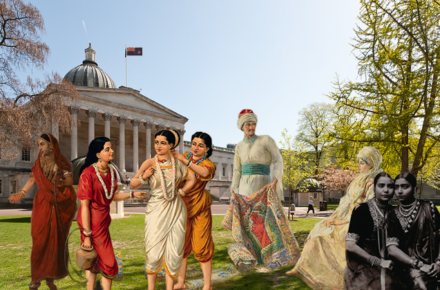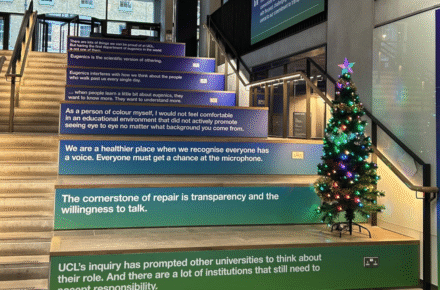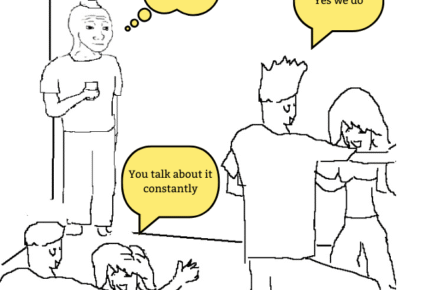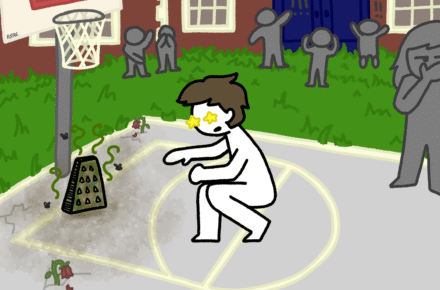While researching a mask belonging to the Sande society of Mendiland, Sierra Leone, for an assignment, I was puzzled to discover that UCL’s Ethnographic Collection did not have enough information on this object. Only the most basic details were included in its description: the approximate origin date, source location, and ID number. What truly intrigued me was the obscure reference to the object having previously been in a private collection, and the absence of any identifying details. As the department of Anthropology aims to understand objects as having their own lives and trajectories, this lack of information contradicted the teaching I had received. Therefore, I partnered with a friend to investigate how and why these objects happened to be in this collection, and why there was so little information on them. The mask, along with many other artefacts, is a donation whose prior ownership is untraceable, making the identification process even more difficult.
UCL’s Ethnographic Collection was established by Daryll Ford in 1945, the head of the Anthropology department at the time, with the majority of its objects having been donated from museums and private collections. Yet, its existence presents us with a conflict of interest. While these objects relay a colonial legacy, they also act as an educational medium for students and members of the public. A lack of identifying information disregards the respect owed to ethnographic objects and their origins.
Delphine Mercier, a curator working at the collection, revealed to us that the disorganisation of the collection at its inception created a vacuum of knowledge. The curators have been undertaking the immense task of identifying and tracing one object at a time. In one instance, Delphine told us, an object was discovered to be sacred only after research, so a case was crafted for the protection of its sanctity. However, this kind of research requires vast time and resources. Due to a lack of staff, this process has been hugely prolonged.
This made us think that if there were more recognition surrounding ethnographic research, the department could garner volunteers university-wide to help with the work that they do. Even though one of us does not study Anthropology, she would love to volunteer within the collection. Whilst the chance to volunteer is available to Anthropology students, if more students were to hear about this initiative, the collection would prosper.
UCL has a responsibility to enable the process of identifying and organising the ethnographic collection on a larger scale in order to decolonise as an institution. In addition to tracing the history of their collection, curators are also attempting to connect with source communities, who may want to either reclaim the objects, or provide more information on them. Delphine stated that repatriation is definitely in the collection’s future.
There must be a larger onus on publicising this collaboration; the department is open to being contacted, yet this is not common knowledge. The global public must be made more aware of the possibility of this communication, thus granting these objects the respect they deserve.
What the Anthropology department needs is a thorough review of the collection, from organising archives to updating the outmoded online catalogue, and improved publicity directed towards both volunteers and source communities.
If the department heads in this direction, one object at a time, the road towards a decolonised institution will become ever more concrete.
Nina Todres and Lily Peng
This article appeared in CG Issue 79









